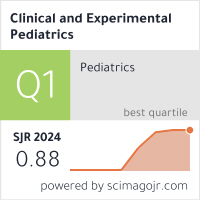|
|
Although the increasing incidence of central precocious puberty (CPP) in Korea has recently raised public concerns about health and growth problems, there are many areas of uncertainty regarding the pathogenesis, diagnosis, and management of CPP. In this paper, we review the definition of precocity, the assessment of CPP, and the hormonal abnormalities that support the diagnosis. In addition, we review... |




